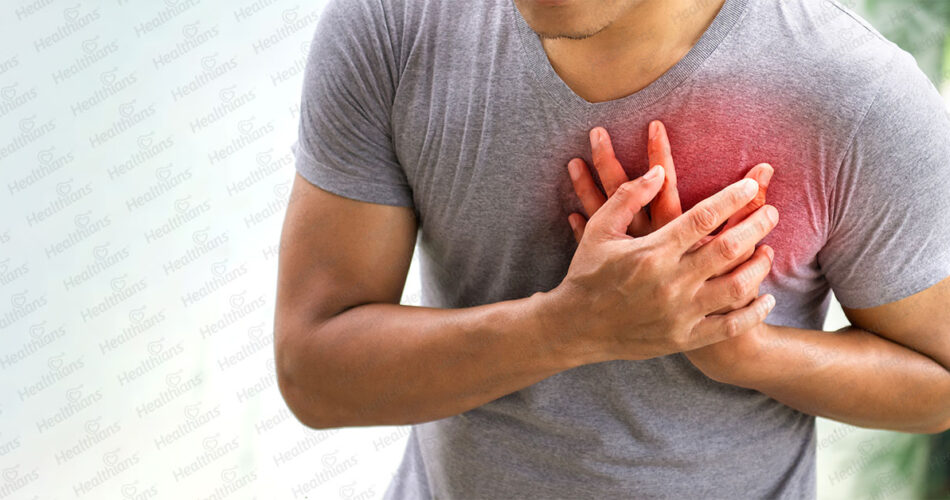Cardiovascular disease refers to a group of conditions that affect the heart and blood vessels. It is a broad term that encompasses various disorders, including coronary artery disease, heart attack, strokes, heart failure, arrhythmias (irregular heart rhythms), and peripheral artery disease.
The primary underlying cause of the cardiovascular disease is atherosclerosis, a condition characterized by the build-up of fatty deposits, cholesterol, and other substances in the arteries. This build-up, known as plaque, narrows and hardens the arteries, reducing blood flow to the heart and other organs.
Cardiovascular disease is a serious condition, being a leading cause of death worldwide. Therefore, raising awareness surrounding cardiovascular health is crucial, so as to recognise the risk factors, symptoms, and preventive measures related to cardiovascular diseases that include:
1. Coronary Artery Disease (CAD)
2. Stroke
3. Arrhythmias
4. Peripheral Artery Disease (PAD)
Cardiovascular awareness encompasses several aspects, including recognizing the signs and symptoms of heart attacks, understanding risk factors, including:
- High blood pressure
- High cholesterol
- Smoking
- Obesity
- High sugar and diabetes
In this blog, we will explore the signs of a heart attack that call for prompt medical intervention. Knowing the signs and symptoms of an impending heart attack can help you to know when to seek medical attention and understand the importance of preventive screenings and routine check-ups with healthcare professionals.
Warning signs of heart attack that should not be ignored
Here are some common symptoms and signs to be aware of:
Chest Discomfort
Chest discomfort is one of the primary symptoms of a heart attack. It is often described as a sensation of pressure, tightness, squeezing, or heaviness in the center of the chest. The discomfort can vary in intensity and duration and may last for a few minutes or persist for an extended period. The chest discomfort during a heart attack may feel like:
Pressure
Many people describe the sensation as a heavy pressure or a feeling of someone sitting on their chest. It may feel like a band is tightening around the chest.
Tightness
The chest may feel constricted or tight as if something is squeezing it from the inside.
Squeezing
Some individuals compare chest discomfort to a squeezing or crushing sensation. It may feel like a vice grip on the chest.
Heaviness
The chest may feel unusually heavy as if a weight is pressing down on it. This heaviness can be persistent or come and go intermittently.
Discomfort in areas of the upper body
Pain or discomfort may radiate beyond the chest to the arms (especially the left arm), back, neck, jaw, or stomach. The sensation can be aching, numbness, or a feeling of pressure.
Shortness of breath
Another classic heart attack symptom is feeling breathless or having difficulty catching your breath. It may be accompanied by a rapid or shallow breathing pattern.
Breaking out into cold sweat
Excessive sweating, often described as a cold sweat, for no obvious reason, can be a symptom of a heart attack. The skin may feel clammy or moist.
Nausea, indigestion or vomiting
Some individuals may experience feelings of nausea, and it may be accompanied by vomiting during a heart attack. These symptoms can be particularly likely in women.
Fatigue and weakness
If you are feeling extreme fatigue or weakness, after doing something you could do easily in the past like carrying groceries from the car or climbing the stairs, seek an appointment with your healthcare provider right away. It can be a sign of a heart attack. This symptom may be more pronounced in older adults or individuals with diabetes.
Dizziness or fainting
Feeling lightheaded, dizzy, or experiencing a loss of consciousness can occur during a heart attack. It may result from reduced blood flow to the brain.
Anxiety or restlessness
The sudden onset of a sense of anxiety, uneasiness, or extreme restlessness without an apparent cause can be indicative of a heart attack. This symptom may be more common in women.
It is important to note that symptoms can vary among individuals, and some people may experience atypical symptoms or no symptoms at all (especially in women, older adults, or individuals with diabetes).
If you experience any of these symptoms, it is crucial to take them seriously and seek immediate medical attention by calling emergency services. Acting quickly can help improve the chances of survival and minimize potential damage to the heart.
Closing Thoughts
Early detection and treatment can significantly improve outcomes and reduce the impact of cardiovascular diseases on individuals and their communities. By promoting cardiovascular awareness, you can empower yourself to make informed lifestyle choices and take the necessary steps to maintain a healthy heart, leading to a healthier and more fulfilling life.




